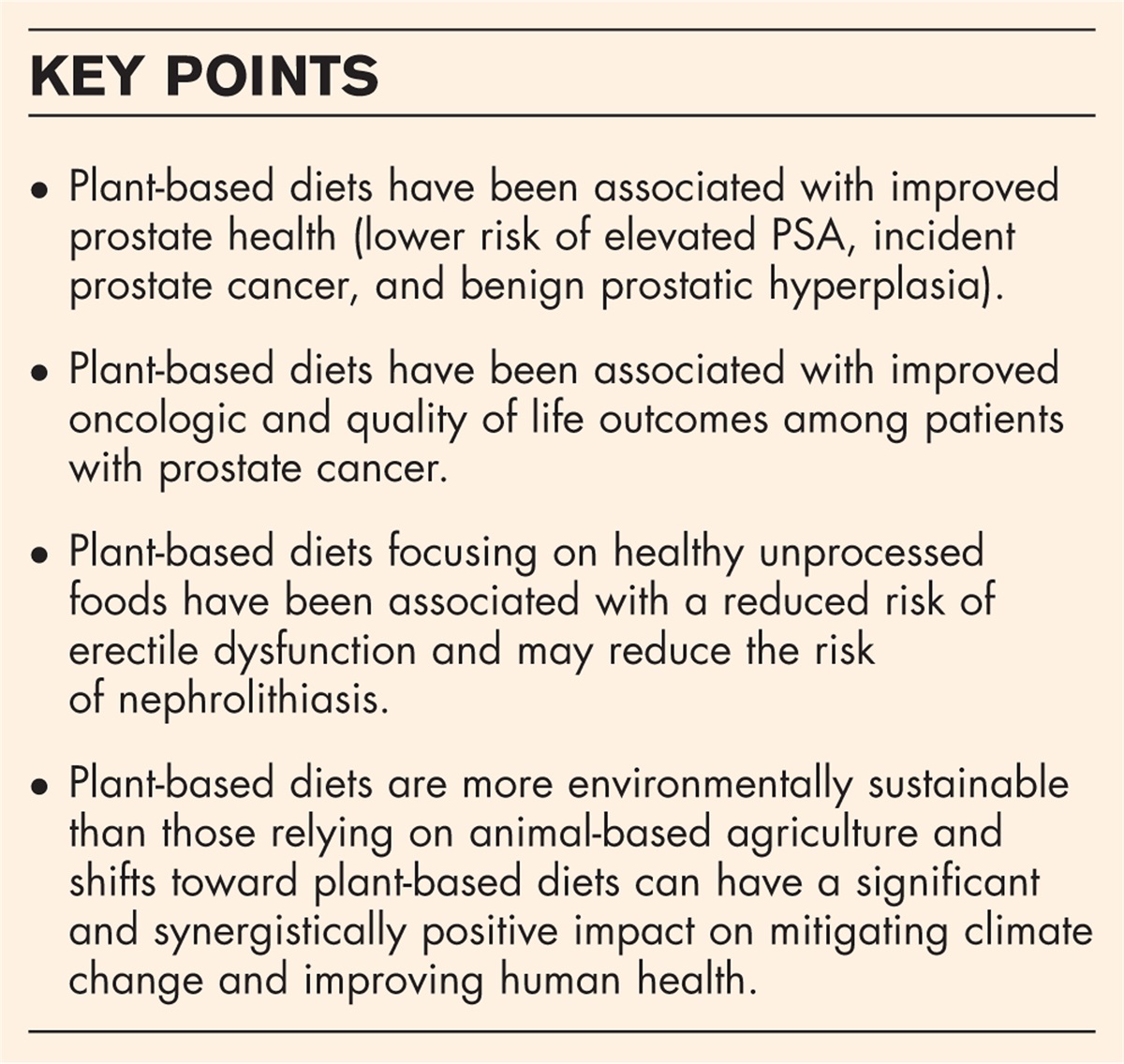vegan
If you're here because of the "drama", congratulations, I am too apparently. If you're also here with the position that a vegan diet is unhealthy in humans, I'm begging you for a toilet break's worth of your time. The contents of this post are wholly divorced from ethics or environmental concerns, are not here to "own you with facts and logic", and are focused solely on human health through the quoting of scientific literature. For as many of these as I can, I have provided links to the full text on the NCBI's PubMed Commons in the interest of transparency. --- * It is the position of the Academy of Nutrition and Dietetics that appropriately planned vegetarian, including vegan, diets are healthful, nutritionally adequate, and may provide health benefits for the prevention and treatment of certain diseases. These diets are appropriate for all stages of the life cycle, including pregnancy, lactation, infancy, childhood, adolescence, older adulthood, and for athletes [...] Low intake of saturated fat and high intakes of vegetables, fruits, whole grains, legumes, soy products, nuts, and seeds (all rich in fiber and phytochemicals) are characteristics of vegetarian and vegan diets that produce lower total and low-density lipoprotein cholesterol levels and better serum glucose control. These factors contribute to reduction of chronic disease. —[*Journal of the Academy of Nutrition and Dietetics* (2016)](https://pubmed.ncbi.nlm.nih.gov/27886704/) --- * Based on this systematic review of randomized clinical trials, there is an overall robust support for beneficial effects of a plant-based diet on metabolic measures in health and disease. —[*Translational Psychiatry* (2019)](https://www.ncbi.nlm.nih.gov/pmc/articles/PMC6742661/) --- * In most countries a vegan diet has less energy and saturated fat compared to omnivorous control diets, and is associated with favourable cardiometabolic risk profile including lower body weight, LDL cholesterol, fasting blood glucose, blood pressure and triglycerides. —[*PLoS One* meta-analysis (2018)](https://www.ncbi.nlm.nih.gov/pmc/articles/PMC6301673/) --- * This comprehensive meta-analysis reports a significant protective effect of a vegetarian diet versus the incidence and/or mortality from ischemic heart disease (-25%) and incidence from total cancer (-8%). Vegan diet conferred a significant reduced risk (-15%) of incidence from total cancer. —[*Critical Reviews in Food Science and Nutrition* (2017)](https://pubmed.ncbi.nlm.nih.gov/26853923/) --- * The present systematic review and meta-analysis showed a 15% and a 21% reduction in the relative risk of CVD and IHD, respectively, for vegetarians compared to nonvegetarians, but no clear association was observed for total stroke or subtypes of stroke. In addition, an 18% reduction in the relative risk of IHD was observed among vegans when compared to nonvegetarians, although this association was imprecise. —[*European Journal of Nutrition* (2023)](https://www.ncbi.nlm.nih.gov/pmc/articles/PMC9899747/) --- * Adequate intake of dietary fiber is associated with digestive health and reduced risk for heart disease, stroke, hypertension, certain gastrointestinal disorders, obesity, type 2 diabetes, and certain cancers. According to consumer research, the public is aware of the benefits of fiber and most people believe they consume enough fiber. However, national consumption surveys indicate that only about 5% of the population meets recommendations, and inadequate intakes have been called a public health concern [...] The IOM defines total fiber as the sum of dietary fiber and functional fiber. Dietary fiber includes nondigestible carbohydrates and lignins that are intrinsic and intact in plants; functional fiber includes isolated, nondigestible carbohydrates that have beneficial physiological effects in humans. Common sources of intrinsic fiber include grain products, vegetables, legumes, and fruit. —[*American Journal of Lifestyle Medicine* (2017)](https://www.ncbi.nlm.nih.gov/pmc/articles/PMC6124841/) --- * [R]ecommendations to increase fruit and vegetable consumption, while decreasing saturated fat and dairy intake, are supported [for asthma] by the current literature. Mediterranean and vegan diets emphasizing the consumption of fruits, vegetables, grains, and legumes, while reducing or eliminating animal products, might reduce the risk of asthma development and exacerbation. Fruit and vegetable intake has been associated with reduced asthma risk and better asthma control, while dairy consumption is associated with increased risk and might exacerbate asthmatic symptoms. —[*Nutrition Reviews* (2020)](https://www.ncbi.nlm.nih.gov/pmc/articles/PMC7550896/) --- * Over the past two decades, a substantial body of consistent evidence has emerged at the cellular and molecular level, elucidating the numerous benefits of a plant-based diet (PBD) for preventing and mitigating conditions such as atherosclerosis, chronic noncommunicable diseases, and metabolic syndrome. —[*Nutrients* comprehensive review (2023)](https://www.ncbi.nlm.nih.gov/pmc/articles/PMC10386413/) --- * Consumption of vegetarian diets, particularly vegan diets, is associated with lower levels of plasma lipids, which could offer individuals and healthcare professionals an effective option for reducing the risk of heart disease or other chronic conditions. —[*Nutrition Reviews* systematic review and meta-analysis (2017)](https://www.ncbi.nlm.nih.gov/pmc/articles/PMC5914369/) --- * After adjusting for basic demographic characteristics, medical specialty, and health behaviours (smoking, physical activity) in model 2, participants who followed plant-based diets had 73% lower odds of moderate-to-severe COVID-19 (OR 0.27, 95% CI 0.10 to 0.81) compared with participants who did not follow plant-based diets. Similarly, participants who followed either plant-based diets or pescatarian diets had 59% lower odds of moderate-to-severe COVID-19 (OR 0.41, 95% CI 0.17 to 0.99) compared with those who did not follow these diets. —[*British Medical Journal* (2021)](https://nutrition.bmj.com/content/4/1/257) --- * Current research suggests that switching to a plant-based diet may help increase the diversity of health-promoting bacteria in the gut. However, more research is needed to describe the connections between nutrition, the microbiome, and health outcomes because of their complexity and individual heterogeneity. —[*Nutrients* systematic review (2023)](https://pubmed.ncbi.nlm.nih.gov/36986240/) --- * [T]his systematic review shows that plant-based diets and their components might have the potential to improve cancer prognosis, especially for breast, colorectal and prostate cancer survivors. —[*Current Nutrition Reports* (2022)](https://www.ncbi.nlm.nih.gov/pmc/articles/PMC9750928/) --- * Moderate evidence suggests that adhering to vegan diets for at least 12 weeks may be effective in individuals with overweight or type 2 diabetes to induce a meaningful decrease in body weight and improve glycemia. —[*Obesity Reviews* systematic review and meta-analysis (2022)](https://www.ncbi.nlm.nih.gov/pmc/articles/PMC9540559/) --- * The data discussed in this systematic review allow us to conclude that plant-based diets are associated with lower BP and overall better health outcomes (namely, on the cardiovascular system) when compared with animal-based diets. —[*Current Hypertension Reports* (2023)](https://www.ncbi.nlm.nih.gov/pmc/articles/PMC10224875/) --- * There are multiple benefits of a vegan or vegetarian diet [six listed, too long to quote here] in the management of CKD [...] —[*Journal of Renal Nutrition* (2019)](https://www.jrnjournal.org/article/S1051-2276(19)30026-3/fulltext) --- * The present systematic review provides evidence that vegan and vegetarian diets are associated with lower CRP levels, a major marker of inflammation and a mediator of inflammatory processes. —[*Scientific Reports* (2020)](https://www.ncbi.nlm.nih.gov/pmc/articles/PMC7730154/) --- * Evidence strongly suggests that plant-based dietary patterns that are abundant in fruits, vegetables, nuts, seeds, legumes, and whole grains with less emphasis on animal foods and processed foods are a useful and a practical approach to preventing chronic diseases. Such dietary patterns, from plant-exclusive diets to plant-centered diets, are associated with improved long-term health outcomes and a lower risk of all-cause mortality. Given that neurodegenerative disorders share many pathophysiological mechanisms with CVD, including oxidative stress, inflammation, and vascular damage, it is reasonable to deduce that plant-based diets can ameliorate cognitive decline as well. —[*Advances in Nutrition* (2019)](https://www.ncbi.nlm.nih.gov/pmc/articles/PMC6855948/) --- * [T]he current study presents evidence that plant-based diets, among which the vegan diet, have no effect on physical performance, including on strength/power performance. It is noteworthy that aerobic performance may be even benefitted by these diets. —[*British Journal of Nutrition* systematic review and meta-analysis (2024)](https://pubmed.ncbi.nlm.nih.gov/37869973/) --- * [H]igher adherence to plant-based dietary patterns, especially from healthy sources, may be universally beneficial for the primary prevention of T2D, CVD, cancer, and mortality. —[*Nutrition Journal* systematic review and meta-analysis (2023)](https://www.ncbi.nlm.nih.gov/pmc/articles/PMC10548756/) --- * This umbrella review offers valuable insights on the estimated reduction of risk factors for cardiometabolic diseases and cancer, and the CVDs-associated mortality, offered by the adoption of plant-based diets through pleiotropic mechanisms. Through the improvement of glycolipid profile, reduction of body weight/BMI, blood pressure, and systemic inflammation, A/AFPDs significantly reduce the risk of ischemic heart disease, gastrointestinal and prostate cancer, as well as related mortality. —[*PLoS One* (2024)](https://www.ncbi.nlm.nih.gov/pmc/articles/PMC11095673/) --- * In this community‐based cohort of US adults without cardiovascular disease at baseline, we found that higher adherence to an overall plant‐based diet or a provegetarian diet, diets that are higher in plant foods and lower in animal foods, was associated with a lower risk of incident cardiovascular disease, cardiovascular disease mortality, and all‐cause mortality. —[*Journal of the American Heart Association* (2019)](https://www.ncbi.nlm.nih.gov/pmc/articles/PMC6759882/) --- * In this meta-analysis of prospective observational studies, we found that greater adherence to a plant-based dietary patterns was inversely associated with the risk of type 2 diabetes. These findings were broadly consistent across subgroups defined by various population characteristics and robust in sensitivity analyses.—[*JAMA Internal Medicine* (2019)](https://www.ncbi.nlm.nih.gov/pmc/articles/PMC6646993/) --- * Our findings suggest that a shift in diet from a high consumption of animal-based foods, especially red and processed meat, to plant-based foods (e.g., nuts, legumes, and whole grains) is associated with a lower risk of all-cause mortality, CVD, and T2D. Thus, a change in dietary habits towards an increment of plant-based products appears to be important for cardiometabolic health. —[*BMC Medicine* systematic review and meta-analysis (2023)](https://www.ncbi.nlm.nih.gov/pmc/articles/PMC10652524/) --- * Not only is there a broad expansion of the research database supporting the myriad benefits of plant-based diets, but also health care practitioners are seeing awe-inspiring results with their patients across multiple unique subspecialties. Plant-based diets have been associated with lowering overall and ischemic heart disease mortality; supporting sustainable weight management; reducing medication needs; lowering the risk for most chronic diseases; decreasing the incidence and severity of high-risk conditions, including obesity, hypertension, hyperlipidemia, and hyperglycemia; and even possibly reversing advanced coronary artery disease and type 2 diabetes. —[*The Permanente Journal* (2016)](https://www.ncbi.nlm.nih.gov/pmc/articles/PMC4991921/)
The other day I learned what a Luther burger is, and I wanted to see if anyone had made a vegan version.
Content Warning: shows real meat or products. Describes harvesting animals in detail.
There are "juice" drinks that contain 0% fruit juice so I feel like this isn't an impossibility. I often joke that shit like cheese wiz could not possibly have come from nature. Can anyone think of an example?

https://mstdn.social/@ElleGray/113272986345873402 (photographer: @ChrisReichert3 on twitter)
 sentientmedia.org
sentientmedia.org
Activists got a slaughterhouse moratorium on Denver’s ballot — but what are its chances?
 journals.lww.com
journals.lww.com
>Studies have highlighted the association of plant-based diets with a lower risk of multiple urological conditions including prostate cancer, erectile dysfunction, benign prostatic hyperplasia, and nephrolithiasis, as well as benefits for planetary health. >Plant-based diets are associated with numerous benefits that co-promote urological and planetary health.
 www.latimes.com
www.latimes.com
>The text of the law recognizes that octopuses are “highly intelligent, curious, problem-solving animals” that are conscious, sentient and experience “pain, stress, and fear, as well as pleasure, equanimity, and social bonds.” It goes on to note that in research studies, these eight-legged marine invertebrates have demonstrated long-term memory as well as the ability to recognize individual people. At the very least, this sets a precedent, although it's pretty obvious based on the law's text that octopodes being the target here instead of or in addition to e.g. pigs which [are known to be quite intelligent](https://www.psychologytoday.com/us/blog/animal-emotions/201506/pigs-are-intelligent-emotional-and-cognitively-complex) is a clear example of doublethink. Nonetheless, this is a huge win for just leaving animals the fuck alone.
 www.chowhound.com
www.chowhound.com
I know this is a relatively small culprit in the grand scheme of things, but I figure there are people out there who would want to know about this (lest the Vegan Police remove your vegan powers). >When wines are freshly fermented, they typically have particles suspended in the liquid, like tannins, yeast, and proteins, giving the wine a cloudy look. Over time, these will settle on their own [...], but that can be a slow process. So, winemakers often use the fining process to clarify their wine, making it a nice, clear, non-cloudy color. Certain proteins are added to the wine and effectively latch onto those cloudy particles before dropping to the bottom of a wine barrel, where they can be filtered out. It's these proteins that are the culprit here: The most commonly used fining agents are milk or animal proteins (specifically casein and gelatin), isinglass (a gelatin derived from fish bladders), and albumin (from egg whites). [...] >There are vegan-friendly fining agents, like activated charcoal and bentonite [...]. To confirm whether a wine is vegan, you may need to contact the winemaker or company directly. You can also consult a certification organization called BevVeg, which lists legitimate vegan wines. Alternatively, if wines are labeled as "unfined" or "unfiltered," this means that no fining agent has been used, so it should be a safe bet.
New York City (NYC) Health + Hospitals implemented a nutrition program making plant-based meals the primary lunch and dinner options for patients at its 11 hospitals.
tl;dr partner of 3 years broke my rule and ate meat in the house while i was gone. wondering about the future of our relationship for context, we had a discussion and set a rule that no pork or beef would enter the house because it makes my kitchen feel disguisting and unclean, as well as bums me out obv. not to discriminate against other types of meat but something about the smell of the two mentioned + the high fat causing it to stick everywhere is a hard, hard no. anyways, a few weeks ago i went on a trip and my partner decided to bring home and cook bacon while i was gone. my kitchen stunk for over a week and i was miserable. i made this known and thought we were good. i just got back from another trip and saw ha bought salami. i think he tries to be sneaky about it but now my nice, expensive wooden cutting board just feels contaminated because i dont know what happened when i was gone. im not just bad he broke a rule we talked about and he agreed to, but just disappointed he so desperately feels the need to eat a dead pig that he'd knowingly break a rule in our relationship, opting to sneak around me rather than grow a spine and talk about it. we've been fighting about meat for years, including him ordering it in front of me at restaurants (which totally ruins a date for me) esp when theres an easy vegan switch. whether or not he follows the rule anymore is starting to seem like a mute point because it just bothers me so much how little he cares after being with a vegan for 3 years. i wasnt a hardcore vegan when we got together so its just bothered me more over time and its starting to build resentment. anyone been in a similar situation or has any advice? are we doomed?
The research was partly funded by ProVeg, but the evidence itself seems reasonably compelling, and the researchers appear to have done a good job controlling for factors that their previous study failed to.
 www.nbcnews.com
www.nbcnews.com
This may be a controversial post because it strays from the exploitation of non-human animals, but this is a story about human bodies being sold and used without their prior consent, which to me speaks to a similar (albeit more severe) indignity that non-human animals face in the medical industry. That is to say "this isn't vegan". Feel free to downvote this post heavily and say as much in the comments if you feel this isn't on-topic for this community, as I know there are plenty of other places that will address this with an appropriate level of appallment.
I'll start: some years ago, a medical professional recommended I take a daily omega-3 supplement. What I got naturally was fish oil capsules, and these of course had the nutrients I needed. So problem solved. But not only did these make me queasy, they also (I'm so sorry for this imagery for those who've never had these) gave "fish burps". Basically, after ingesting them, they can (and for me consistently did) give you these nasty, tic-like burps that taste like you let a fish decay in a bucket for three days and drank that water. This goes on for a while until the I realize that they sell "burpless" fish oil. The day was saved, and I went home with a new lease on life. Well, until I tried it and I realized that it's not so much "burp-less" as it is "burp-lite". It just reduced the severity of the symptoms but meant I still felt slightly sick and could still have those nauseating burps. I eventually gave up on it because even just one stray burp felt that gross. Later on, I went vegetarian (I'm now vegan), and although at that point I had plenty of ALA in my diet, I decided to look back into an omega-3 supplement as a precaution since my diet had shifted so dramatically. Of course fish was out of the question, so I looked into alternatives and landed on flaxseed oil capsules. These were more expensive per capsule, but I felt that they made up for it by having 1.6x the omega-3 per capsule. Taking one for the first time, I felt 100% normal. No upset stomach, no burps, no weird fish taste (in fact, if you crack open the capsule, the oil is quite bland). It worked flawlessly. At that time I didn't avoid the gelatin in the capsule as I would now, but you can find flaxseed oil in plant-based capsules for a slightly higher price from suppliers like Deva. TL;DR: flaxseed oil supplements omega-3 without nasty side effects like fish oil capsules. It just works, and I wish I'd known about it so much sooner.






















